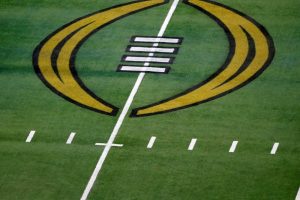Sen. Jerry Moran says federal college-athlete name, image, likeness law by July 1 unlikely

Sen. Jerry Moran (R-Kan.) said Tuesday that “it will be difficult … if not impossible” for a federal law pertaining to college athletes’ ability to make money from their names, images and likeness to be enacted before July 1, when such laws will take effect in at least six states.
However, in an interview with USA TODAY Sports after meeting with NCAA President Mark Emmert, Moran also said that Emmert’s visit to Washington emphasizes for lawmakers the urgency of the need for action that would prevent a state-by-state approach on name, image and likeness (NIL).
Moran is the author of one of three bills that have been introduced in this Congressional session, and he said he believes his measure offers the best vehicle for Republicans and Democrats to reach a compromise.
Tennessee: Gov. Bill Lee signs name, image, likeness bill for college athletes
While he is not optimistic that a bill could be signed into law by July 1, Moran said: “It's become a much more important issue” than it had been a month or two ago, before Georgia, Mississippi, Alabama and New Mexico joined Florida and Nebraska in passing laws that could take effect July 1.
“The timeliness of what's happening across the country has now begun to dawn onto my colleagues,” Moran said. “And it's one of the things about Congress: It takes usually some outside force, some event, to get faster action. . . . And if we could reach a conclusion, this is the kind of legislation that could be attached to some other piece of legislation that's already working its way across the Senate floor.”
On Saturday, Emmert reiterated his commitment that before the beginning of the 2021-22 school year, the NCAA will change its NIL rules. Such a move would fundamentally alter a system of amateurism that prevents athletes from participating in endorsement deals, monetizing their social-media followings or getting paid for signing autographs amid an enterprise that generates billions of dollars for their schools. But the NCAA’s proposals would conflict with some provisions of state laws.
Source: Read Full Article
